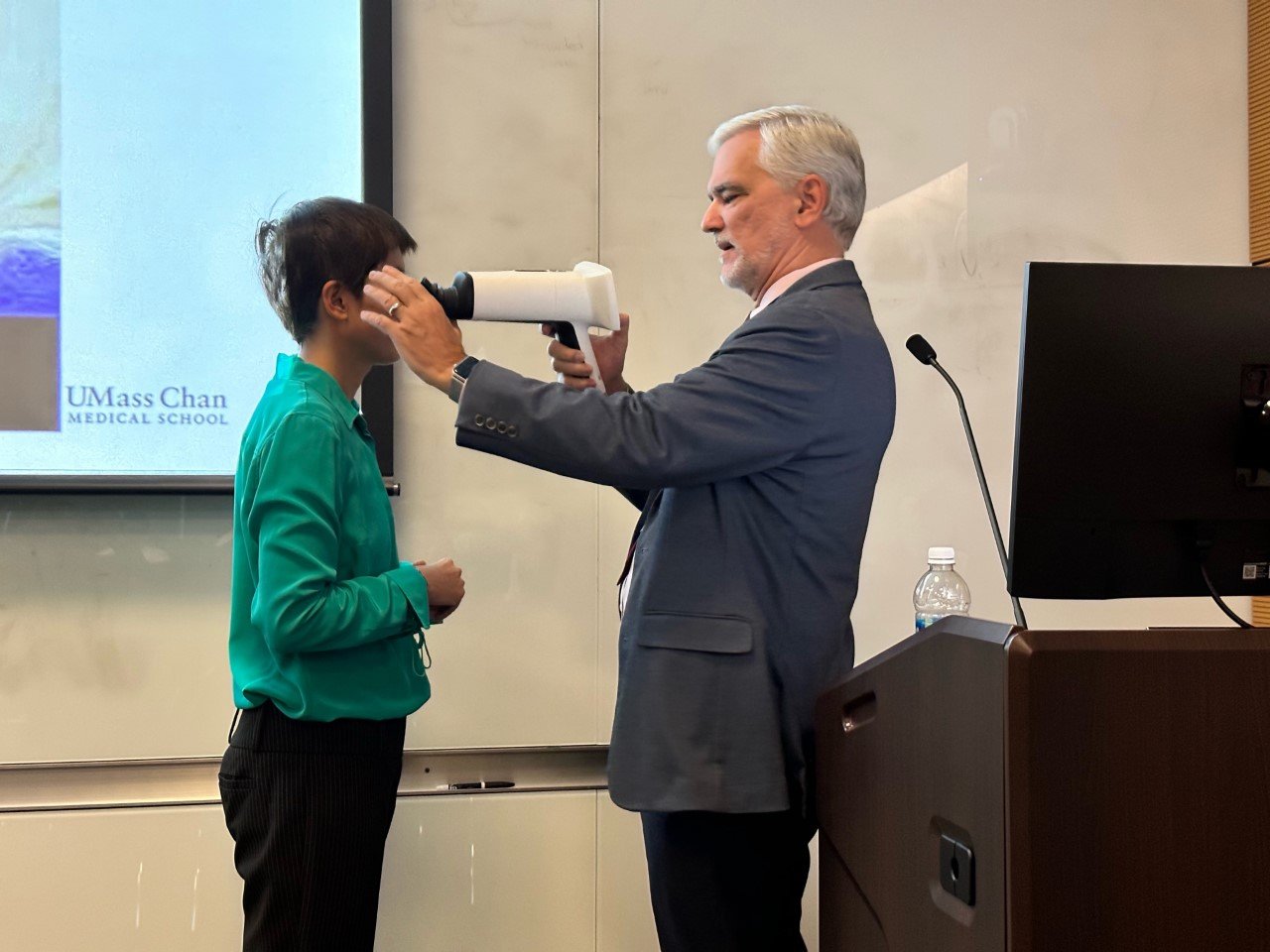Diabetic Retinopathy Screening Using Artificial Intelligence in a Primary Care Setting
Date Posted: Wednesday, November 02, 2022Diabetic Retinopathy Screening Using Artificial Intelligence in a Primary Care Setting Juan Ding OD, PhD, Assistant Professor, Department of Ophthalmology and Visual Sciences; James Ledwith, MD, FAAFP, Assistant Professor, Department of Family Medicine and Community Health.
Diabetic retinopathy remains the number 1 cause of vision loss in working-age adults in America. Key to prevent this vision loss is early screening and detection. However, the screening rate remains low world-wide as well as in the US. For many Americans, there are several barriers to accessing quality eye care which include income, distance to the nearest clinic, and health insurance among other factors. Due to these barriers, it is important to improve the methods of screening for diabetic retinopathy, as well as the adherence to recommended follow up. Recent studies have identified AI-based algorithms as promising tools for the screening and early identification of DR in at-risk individuals. Many different algorithms are being developed and the sensitivity and specificity of these algorithms needs to be evaluated before they can be clinically implemented. Further, there are limitations for the currently available AI that prevent them from being widely used clinically.
Our research aims to implement a novel AI that overcomes these limitations and improve diabetic retinal screening. We have partnered with the digital health company AEYE Health to test the diagnostic accuracy of a hand-held AI-assisted non-mydriatic funduscopic camera to be used in the primary care setting to screen at-risk individuals for retinal changes indicative of diabetic retinopathy. AEYE AI algorithm just received FDA clearance and we are in the final stage of implementing this technology in the primary care setting.

